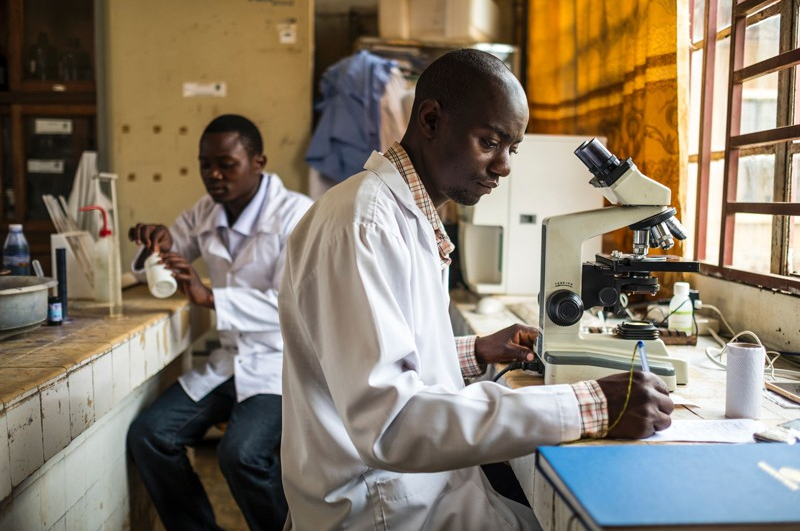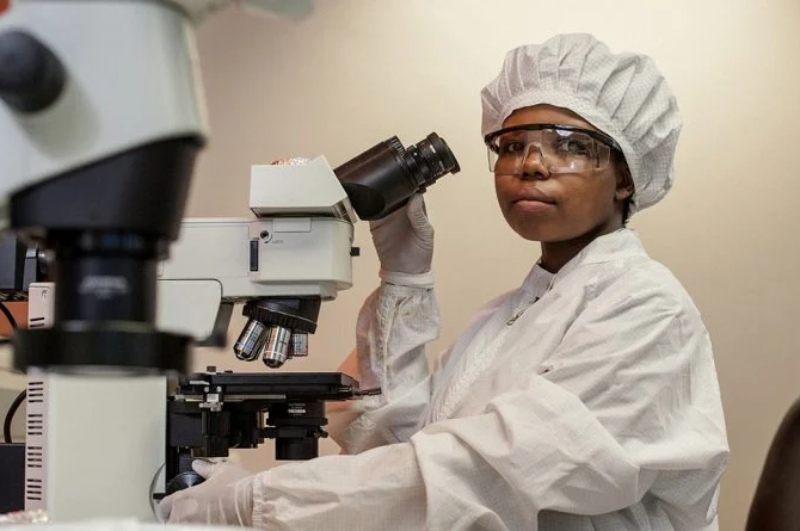



Creating a Plan for the Eradication of Poverty Diseases in Post-COVID-19 Africa
In response to Pope Francis’ call on the Church to mobilise leadership for the construction of a healthier and more just world, the Africa Health and Economic Transformation Initiative (AHETI) hosted by the Jesuit Justice and Ecology Network – Africa (JENA), based in Nairobi Kenya, in collaboration with the Yale University Global Justice Program and AUDA-NEPAD is working for the needed transformation of not only economic and healthcare institutions but also of minds and hearts to build a healthier and more just world. COVID-19 has laid bare the inequities and injustices that threaten people’s well-being, safety, and lives, and exacerbated an interconnected set of crises – health, economic, ecological, political, social – that disproportionately impact the poor and most vulnerable. For this reason, AHETI and its partners are responding to Africa’s health crisis as one related to and one that forms part of a set of multiple interrelated crises that need to be dealt with if we are to truly usher in a healthier and more just world.
What is the Problem?
Globalised in 1995 through the TRIPs Agreement, humanity’s dominant mechanism for encouraging innovations involves 20-year product patents, whose monopoly features enable innovators to reap large markups or licensing fees from early users. In the pharmaceutical sector, such markups often exceed 1000 times the unit cost of production. Accordingly, Africans are largely excluded from patented pharmaceuticals, and innovators neglect diseases that are concentrated among the poor in Africa like tuberculosis, malaria and diarrheal diseases. In fact, as much as 97% of Malaria disease’s burden rests in Africa, only 3% of treatment solutions come from Africa. This pattern is replicated across other challenges Africa faces.
Current incentives for drug development have failed to deliver treatment for many diseases for which demand is too weak to support high prices in Africa. New more impact-driven economic models are therefore needed to provide sustainable rewards for innovators looking to pursue drug candidates that have significant prophylactic or therapeutic potential but are not commercially attractive under the current regime. There is need to ensure that Governments and industry urgently collaborate to test potential models, as instability from historical and emergent global health crises presents an increasing structural risk to economies, industry and healthcare systems. There is further need to promote a robust manufacturing ecosystem that is required for Africa to become more self-sufficient in manufacturing the pharmaceuticals its population needs.
Afya Africa: Health for All Conference Intervention
AHETI is inviting various stakeholders to join the vibrant global community with various initiatives for a two-day conversation on how to create a Roadmap for an Africa free from TB, malaria, diarrhoea and any other poverty diseases in the promotion of health for all. It is a practical conversation that can guide and empower all to start on the path out of diseases and out of this self-inflicted Pandemics Era into a more secure world. AHETI believes that together we can bring together various solutions, refine and jointly implement them.
The main objective of this two-day conference is present alternative models to incentivize pharmaceutical production in Africa and to give a comprehensive picture of key issues in the promotion of local pharmaceutical production in Africa to improve access to essential medicines. It will be a unique opportunity to review the achievements of several projects implemented to foster local pharmaceutical industries in Africa since early 2000s and to further develop and enhance these interventions. The conference will provide a platform for an in-depth exchange among African countries and beyond on the key issues surrounding local pharmaceutical production at enterprise level, embedded in a national, regional and global context.
Potential Inputs
The discussions, exchange and dialogues at the Conference will be informed by the products of Work Streams driving the preparatory process of the Conference
1. The Presentation and launch of the Health Impact Fund Africa Pilot, an emerging alternative model for incentivizing pharmaceutical production in Africa to be led by the Incentives for Global Health (IGH), AHETI, and the Yale University Global Justice Program. all devoted to advancing market-based solutions to global health challenges
2. Updates on current local efforts with a focus on the Pharmaceutical Manufacturing Plan for Africa (PMPA)
3. Action Tracks: The draft of five short discussion papers that set out the overall ambition, challenges, opportunities, and possible solutions related to the six thematic Action Tracks on the key issues surrounding local African pharmaceutical production at enterprise level, embedded in a national, regional and global context.
These will include the following topics:
a. Global structural reform
b. Technology transfer
c. Production and Supply Chains
d. Financing
e. Quality and Regulation
f. Integrative Health.
4. Proposals for new or scaled‐up initiatives, building on existing initiatives, partnerships, and coalitions.
5. Key recommendations for follow‐up actions.
Conference Participants
The conference will bring together a wide range of stakeholders whose collaboration is essential for promoting local pharmaceutical production, these include representatives of pharmaceutical companies and associations in Africa and other developing countries; Ministries of Health; Ministries of Industry and Trade; Drug regulatory authorities; Patent offices; International organizations; Civil society and academia.
Dates: 11th and 12th January 2023
Venue: Kigali Convention Centre, Kigali, Rwanda.
Select Payment Method
Pay by bank transfer
If you wish to make a donation by direct bank transfer please contact Fr Paul Hamill SJ treasurer@jesuits.africa. Fr Paul will get in touch with you about the best method of transfer for you and share account details with you. Donations can be one-off gifts or of any frequency; for example, you might wish to become a regular monthly donor of small amounts; that sort of reliable income can allow for very welcome forward planning in the development of the Society’s works in Africa and Madagascar.
Often it is easier to send a donation to an office within your own country and Fr Paul can advise on how that might be done. In some countries this kind of giving can also be recognised for tax relief and the necessary receipts will be issued.


